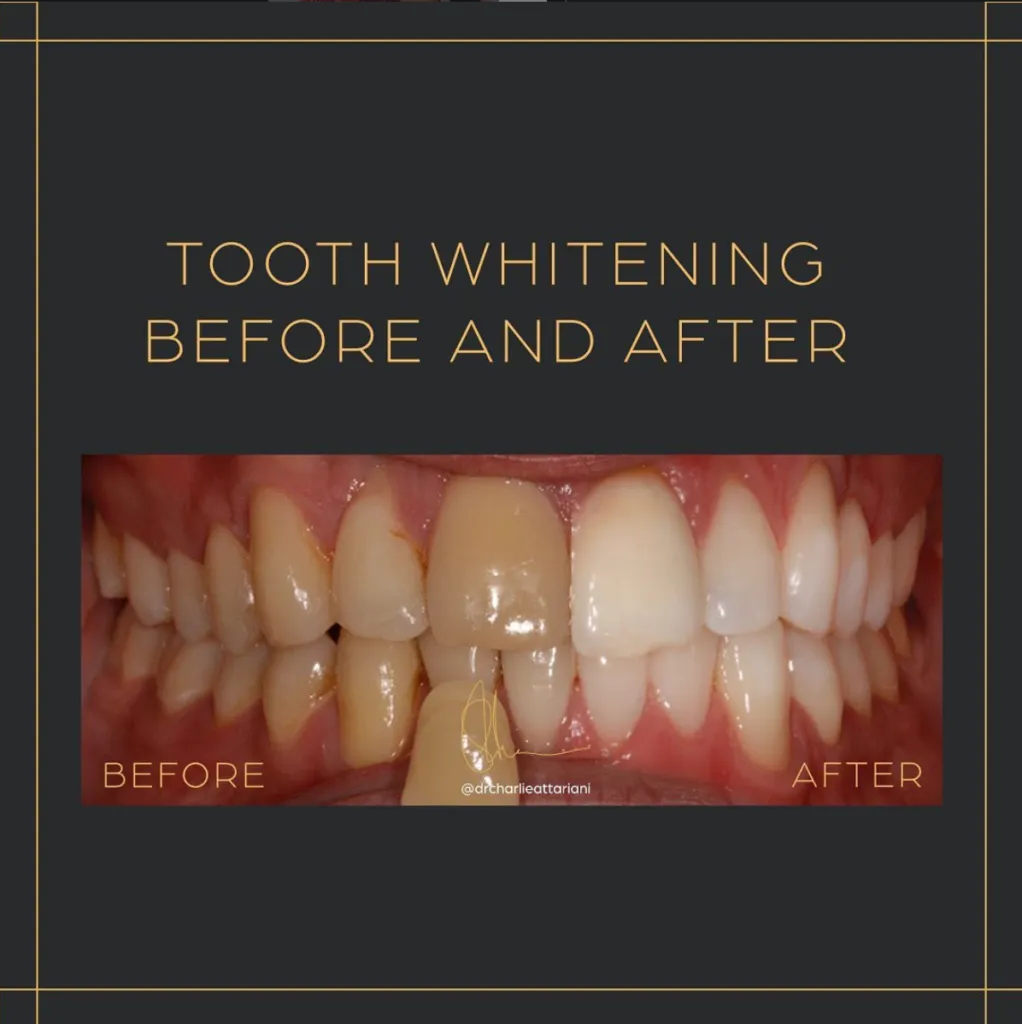What is Laser Teeth Whitening
Laser teeth whitening, also known as light-activated teeth whitening or power bleaching, is a cosmetic dental procedure designed to brighten the color of your teeth. This advanced technique utilizes a high-intensity laser light to accelerate the bleaching process, offering quicker and more dramatic results compared to traditional teeth whitening methods. The procedure typically involves applying a whitening agent, usually a hydrogen peroxide-based gel, to the surface of the teeth. The laser then activates the whitening agent, breaking down stains and discoloration that have accumulated on the enamel. This method is favored for its efficiency and ability to deliver significant improvements in tooth color in a relatively short amount of time, making it a popular choice for those seeking a rapid smile makeover.
The Laser Teeth Whitening Process
Teeth Whitening Preparation
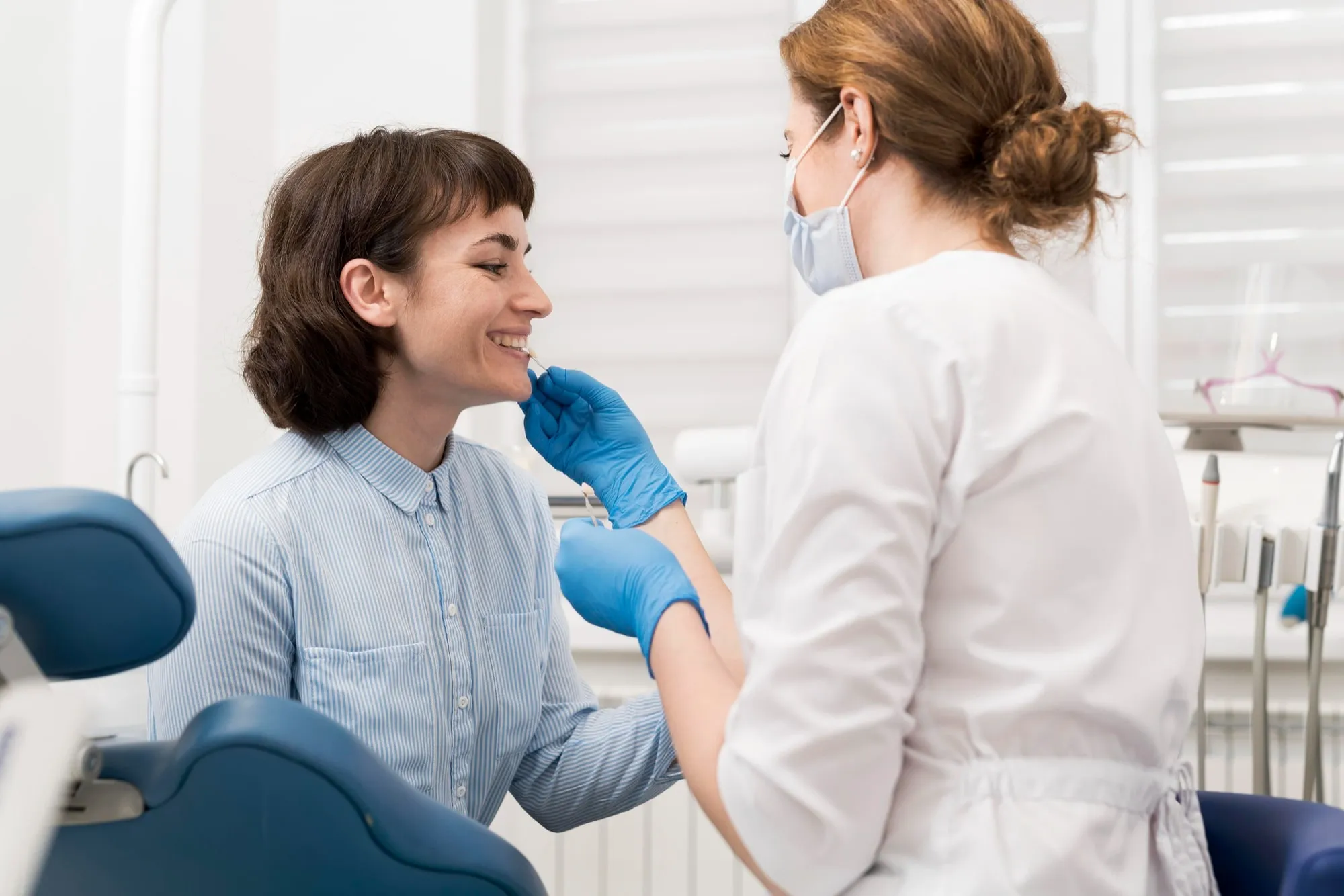
Before undergoing laser teeth whitening, a dental professional will conduct a thorough examination of your oral health. This assessment helps to identify any underlying issues, such as cavities, gum disease, or existing dental work, that may need attention before the whitening procedure. Your dentist will discuss your expectations, assess the shade of your teeth, and explain the process in detail. It’s crucial to inform your dentist about any allergies or sensitivities you have. In some cases, a professional cleaning might be recommended to remove plaque and surface stains, ensuring the whitening agent can effectively penetrate the enamel. Preparing your teeth properly ensures the best possible results and minimizes any potential risks or discomfort associated with the procedure. A pre-whitening consultation is also your opportunity to ask any questions and address any concerns you might have about the process.
The Whitening Procedure
The actual laser teeth whitening procedure is typically performed in a dental office and usually takes about an hour. First, your dentist will protect your gums and lips with a protective barrier to prevent them from coming into contact with the whitening agent. Then, a concentrated hydrogen peroxide gel is applied to the surface of your teeth. The dentist will then use a laser to activate the whitening agent. The laser’s energy accelerates the bleaching process, breaking down stains and discolorations. The procedure may be repeated in intervals, often three or four 15-minute sessions, to achieve the desired level of brightness. During the treatment, you may experience some sensitivity, but this is usually temporary. The entire process is designed to be as comfortable and efficient as possible, providing a noticeable improvement in the color of your teeth in a single visit.
Post-Treatment Care and Maintenance
After laser teeth whitening, it’s crucial to follow your dentist’s post-treatment instructions to maintain your new, brighter smile. You may experience some tooth sensitivity for a few days after the procedure; over-the-counter pain relievers can help manage any discomfort. Your dentist may advise you to avoid certain foods and drinks that can stain your teeth, such as coffee, tea, red wine, and dark-colored foods, for at least a week or two. You should also refrain from smoking, as it can significantly impact the whitening results. Regular dental check-ups and cleanings are essential to maintaining your results. Consider using a whitening toothpaste and mouthwash as part of your daily oral hygiene routine. By adhering to these guidelines, you can prolong the effects of your laser teeth whitening and enjoy a dazzling smile for a long time.
Different Types of Laser Teeth Whitening
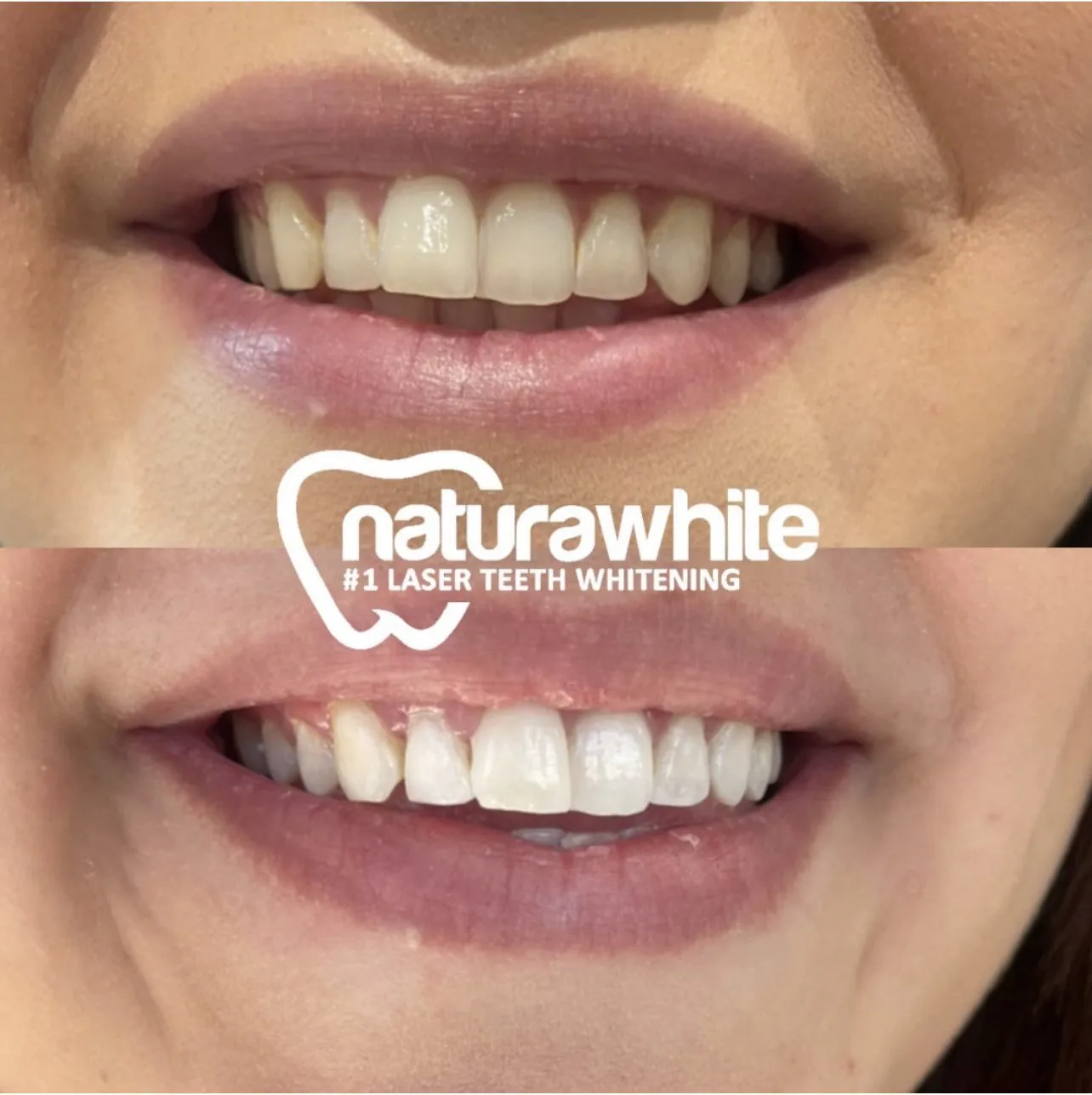
In-Office Laser Whitening
In-office laser teeth whitening is the most common and effective method, performed by a trained dental professional. This procedure involves a high concentration of hydrogen peroxide gel applied to the teeth, which is then activated by a specialized dental laser. The entire process, including preparation and multiple rounds of laser exposure, typically takes about an hour to complete. The intensity of the laser and the strength of the whitening agent provide rapid and significant results, often lightening teeth several shades in a single session. This method is ideal for those seeking immediate and dramatic improvements, with the added benefit of professional monitoring throughout the procedure. Dental professionals can also address any sensitivity or discomfort that may arise during the treatment, ensuring a safe and effective whitening experience. In-office treatments are generally the most expensive option.
At-Home Laser Whitening Kits
At-home laser teeth whitening kits offer a more convenient and budget-friendly alternative, allowing you to whiten your teeth in the comfort of your home. These kits typically include a whitening gel, a mouth tray, and a small, handheld LED light, often marketed as a ’laser’ device. While they may claim to use laser technology, these devices often utilize LED light, which is less powerful than the lasers used in professional settings. The concentration of the whitening agent in at-home kits is also lower, making the process slower and less dramatic than in-office treatments. It is essential to follow the instructions provided in the kit meticulously to avoid any adverse effects and ensure the best possible results. However, at-home kits are not recommended for everyone and are not typically as effective as in-office treatments, but offer a viable option for those seeking a more gradual and affordable teeth-whitening solution.
Laser Whitening vs Other Whitening Methods
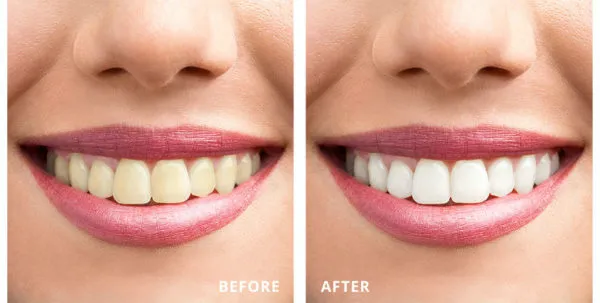
Compared to other teeth whitening methods, such as whitening toothpastes, over-the-counter strips, and trays, laser teeth whitening offers several advantages. Laser whitening provides faster and more dramatic results due to the concentrated whitening agents and the use of a dental laser. Whitening toothpastes, while effective at removing surface stains, offer only a subtle brightening effect. Over-the-counter strips and trays can be more effective but often require multiple applications over several weeks. Laser whitening, on the other hand, can lighten teeth several shades in a single one-hour session. However, it is generally more expensive than other methods. The effectiveness of laser whitening depends on the severity of the stains, the type of stains, and individual tooth characteristics. Laser whitening is best suited for those seeking a rapid, professional-grade solution for a brighter smile. It’s important to consult your dentist to determine the best whitening method for your specific needs and oral health condition.
Benefits of Laser Teeth Whitening
Laser teeth whitening offers several compelling benefits for those seeking a brighter smile. The most significant advantage is the speed and effectiveness of the procedure. In-office laser treatments can lighten teeth several shades in a single session, providing rapid and noticeable results. This is a stark contrast to slower methods, which can take weeks or even months to achieve similar outcomes. Laser whitening is also a safe procedure when performed by a trained dental professional. The process is carefully monitored to minimize any potential risks or side effects, such as tooth sensitivity. Laser teeth whitening is a good option for anyone looking to enhance their appearance and boost their confidence. The immediate improvement in tooth color can have a positive impact on overall self-esteem. The long-lasting effects of laser whitening, when combined with proper maintenance, make it a worthwhile investment for a brighter, healthier-looking smile.
Who is a Good Candidate for Laser Whitening?
Determining whether you are a good candidate for laser teeth whitening involves several factors. Generally, individuals with stained or discolored teeth are ideal candidates. Stains caused by coffee, tea, tobacco, aging, or certain medications are particularly responsive to laser whitening. However, laser whitening is not suitable for everyone. It is most effective on natural teeth; it will not whiten crowns, veneers, or fillings. Individuals with sensitive teeth or gum disease may experience increased sensitivity during and after the procedure. Therefore, a thorough dental examination is crucial before undergoing the treatment. Your dentist will assess your oral health, discuss your expectations, and advise you on the best course of action. Good candidates are typically those with good oral hygiene habits and realistic expectations about the results. People who are pregnant or breastfeeding are generally advised to avoid laser teeth whitening.
Potential Risks and Side Effects
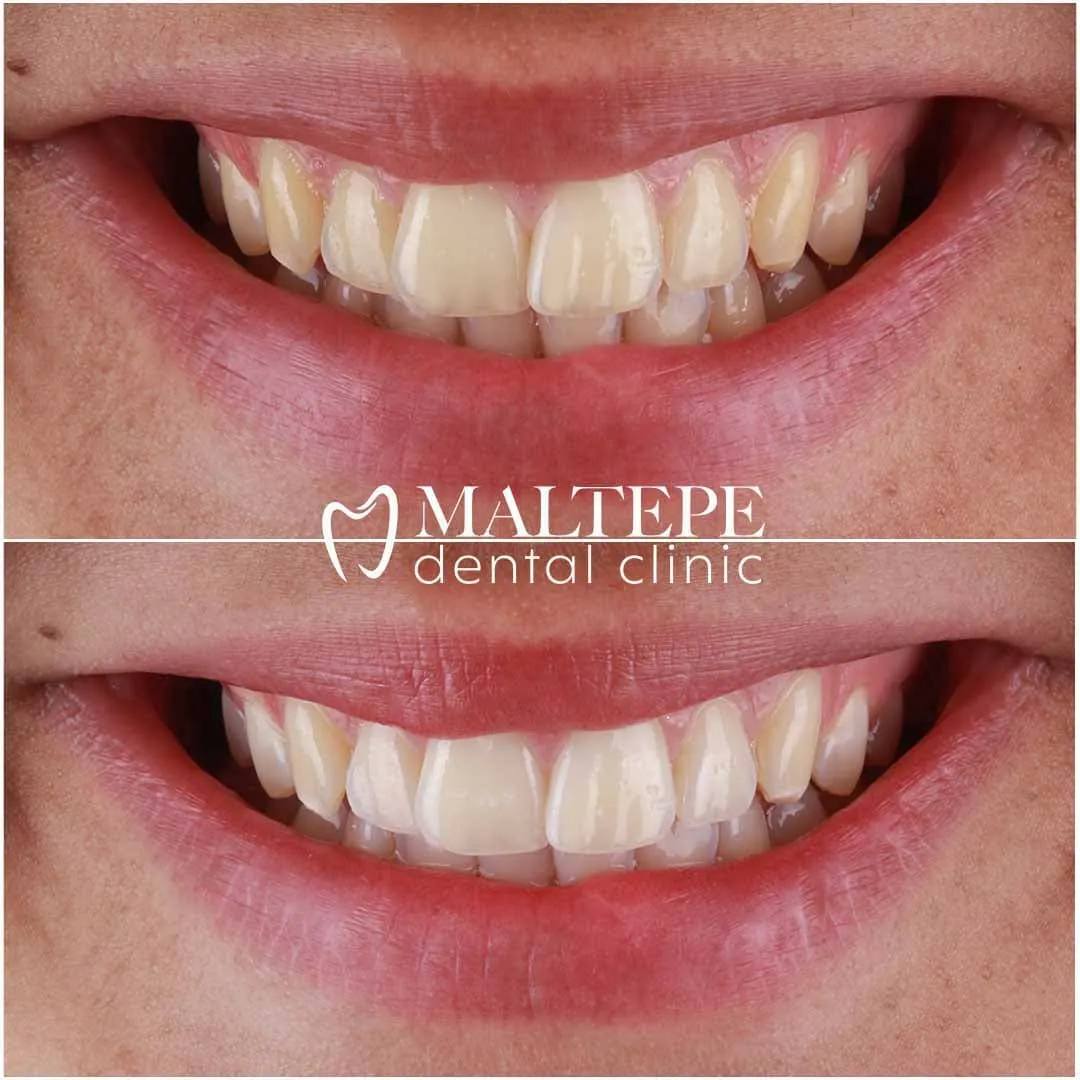
While laser teeth whitening is generally considered a safe procedure, there are potential risks and side effects to be aware of. The most common side effect is tooth sensitivity, which can range from mild discomfort to temporary sharp pain. This sensitivity usually subsides within a few days after the treatment. Some individuals may also experience gum irritation or inflammation, especially if the whitening agent comes into contact with the gums. These issues are typically minor and resolve quickly. In rare cases, more severe side effects such as damage to the tooth enamel can occur, particularly if the procedure is not performed correctly. It’s essential to choose a qualified and experienced dental professional to minimize these risks. Be sure to discuss any concerns or pre-existing conditions with your dentist before proceeding with the treatment. Following post-treatment care instructions is crucial to reducing side effects and ensuring the best possible outcome.
Maintaining Your Bright Smile
Maintaining the results of your laser teeth whitening requires consistent care and attention. To prevent staining, avoid or limit consumption of stain-causing foods and drinks, such as coffee, tea, red wine, and dark-colored berries. Rinse your mouth with water after consuming these items. Smoking and the use of tobacco products can significantly diminish your results and should be avoided. Regular dental hygiene practices are also vital. Brush your teeth twice a day with a whitening toothpaste, and floss daily to remove plaque and debris. Use a soft-bristled toothbrush to avoid damaging your enamel. Schedule regular dental check-ups and professional cleanings every six months to maintain oral health and remove any surface stains. Consider using a touch-up whitening kit or a whitening mouthwash as recommended by your dentist. With proper care, you can enjoy your brighter, more confident smile for a long time.
